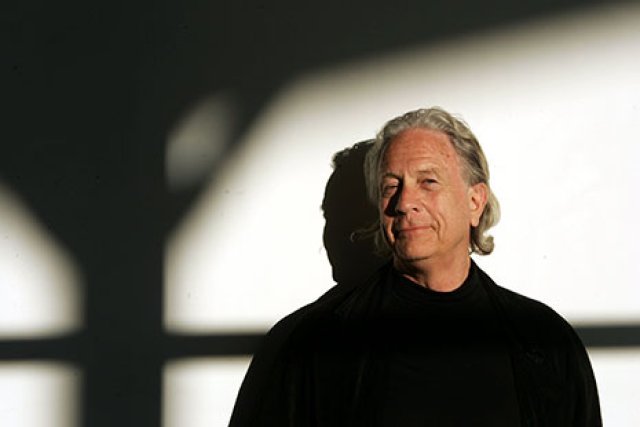
Forgotten War
By Henry Reynolds
New South, 2013
In August, Prime Minister Tony Abbott attended a ceremony in Sydney to mark the 100 years since the Australian Naval and Military Expedition Force sailed out of Sydney Harbour to German New Guinea shortly after Britain declared war on Germany in 1914.
The occasion was the official start of a four-year-long Anzac centenary of jingoism. Abbott was anxious that we “should know all our great war stories better” by the time the centenary commemorations come to an end.
If history is any guide, these commemorations will never end. As Henry Reynolds reminds us in Forgotten War, what began in 1994-95 as a year-long commemoration marking the 50th anniversary of the end of World War II has already lasted 20 years — courtesy of a permanent government-funded program known as “Saluting Their Service”.
The contribution made by Aboriginal and Torres Strait Islanders in the many wars that Australia has participated in since Federation will be recognised in the Anzac celebrations. However, this draws attention away from the armed conflict between settlers and Aboriginals nations.
Aboriginals who fought for the white man are remembered with reverence — the many more who fought against him are forgotten.
Reynolds is one of a pioneering group of historians, anthropologists and others who have transformed our understandings of traditional Aboriginal society and the relationship between Indigenous and settler Australians.
In his latest book, he provides evidence that supports his contention that it was the war of conquest fought against Aboriginal people that made the nation, not the 1915 ill-fated invasion of Turkey.
Conflict came within weeks of the foundation of Sydney and was apparent on every frontier for the next 140 years.
Yet while the large-scale killing of Warlpiri people by police at Coniston in Central Australia in 1928 can be used as a convenient date to mark the end of officially endorsed killing, the brutality has never ended.
The largest military operation in Australia in the 19th century was in Tasmania in 1830. About 550 troops provided the core of a total force of 2200 who mounted a sweep across the island, but failed in their objective of driving hostile Aboriginal bands into the two linked peninsulas in the south-east of Tasmania.
In the late 1850s and early '60s, the fighting in Queensland was often compared to another of the wars of Empire, the Indian Mutiny. The Moreton Bay Courier reported that the conflict with Aboriginal people in Central Queensland “numbered more white victims in these districts than the massacre of Cawnpore”.
Parallels were also drawn with the Jamaica Rebellion repressed by colonial Governor Edward Eyre, who killed about 400 people during his reign of terror.
In 1869, a correspondent in the Bowen newspaper the Port Denison Times referred to the public controversy in Britain that Eyre’s action provoked, asking: “What then, will the people of England say when they learn that more than this number of natives falls each year in Queensland.”
Reynolds records the war waged against Aboriginal people in forensic, harrowing detail. A conservative estimate is that between 25,000 and 30,000 Aboriginal people were killed, and between 2500 and 3000 settlers. By comparison, there were 606 Australians who died in the Boer War, 520 in Vietnam and 339 in Korea.
Reynolds says, “the big question hovering above all these matters is whether the settlers and Aborigines were at war or not. The reluctance of many people to accept the reality of a long but persistent war leaves only one other, infinitely challenging alternative.
“If there was no war then tens of thousands of Aborigines were murdered in a century-long, continent-wide crime wave tolerated by government.
“There seems to be no other option. It must be one or the other.”
Reynolds concludes war was inevitable because of the legal fantasies that Australia had not been acquired by conquest, much less treaty, but as a “desert and uninhabited territory”. Violence was the only means available to enforce such an annexation.
This means there can be no reconciliation without recognition of the war that began in early 1788.
This war legacy lives on, with Western Australia a shameful example. Reynolds recounts the events at Pinjarra in 1835 where lieutenant-governor James Stirling led a party of soldiers and mounted police that trapped the local Aboriginal people in the river and fired on them from both banks for an hour.
Stirling was typical of his contemporaries in trying to bring the conflict with Aboriginals to an end by “such acts of decisive severity as will appall them as a people”.
Just recently in Perth, as local Aboriginal people and their supporters were demanding answers as to why an Aboriginal woman incarcerated for unpaid fines died in the police lock-up in the Pilbarra, an Aboriginal man hanged himself in Perth’s Casuarina Prison.
The number of Aboriginal people jailed for unpaid fines in WA rose by 484% since 2008.
After a four-year royal commission into Aboriginal deaths in custody in 1991, 339 recommendations were made aimed at preventing such deaths. Most of them have never been implemented.
There are thousands of memorials all around Australia dedicated to those who fought in wars overseas. “Lest we forget” is elevated to sacred incantation, but “Best we forget” is the guiding phrase for Australia’s own wars.
Like the article? Subscribe to Green Left now! You can also like us on Facebook and follow us on Twitter.